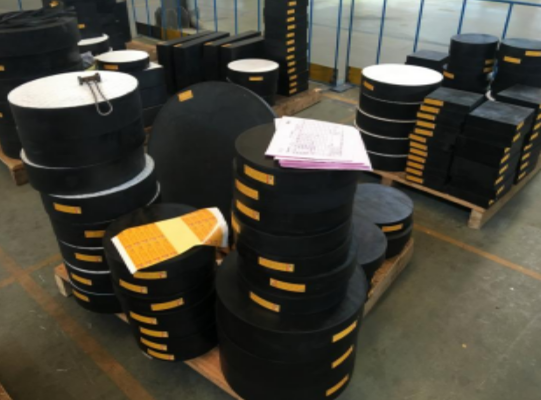When it comes to constructing large and complex structures like bridges, buildings, and industrial facilities, engineers and architects often rely on a multitude of materials and components to ensure safety, stability, and longevity. One such crucial component that plays a significant role in the structural integrity of these projects is the neoprene bearing pad. This unassuming piece of rubber or synthetic material may not garner much attention, but its importance cannot be overstated. In this article, we will explore what a neoprene bearing pad is and why it is essential in construction.
A neoprene bearing pad, often simply referred to as a "bearing pad," is a resilient material designed to provide support and flexibility in various structural applications. These pads are typically made from neoprene rubber, a synthetic elastomer known for its excellent durability and resistance to environmental factors like moisture, chemicals, and temperature extremes. Neoprene bearing pads come in various shapes and sizes, depending on the specific needs of a project, and are strategically placed between structural components to serve several critical purposes.
One of the primary functions of neoprene bearing pads is to distribute the load or weight of a structure evenly. In construction, especially in projects involving heavy loads or dynamic forces, it's crucial to prevent concentrated stress points that can weaken the structure over time. Neoprene pads act as a buffer, absorbing and dispersing the force generated by the structure's weight or external factors such as wind and seismic activity. This redistribution of forces helps prevent cracks, deformations, and structural failures, ensuring the longevity of the project.

Moreover, neoprene bearing pads provide a degree of flexibility and movement within the structure. Buildings and bridges are not static; they are subject to various forces and movements, such as expansion and contraction due to temperature changes or vibrations caused by traffic and wind. Neoprene pads allow controlled movement by accommodating these shifts without transmitting excessive stress to the structure. This dynamic capability helps maintain the integrity of the construction and prevents the accumulation of stress that can lead to structural fatigue.
Additionally, neoprene bearing pads play a vital role in mitigating noise and vibrations. In structures like bridges or buildings located near highways or railroads, vibrations from passing vehicles or trains can be disruptive and even damaging. Neoprene pads act as isolators, reducing the transmission of these vibrations into the structure. This not only enhances the comfort of occupants but also protects the integrity of the construction over time.
Neoprene bearing pads are also highly resistant to environmental factors, making them ideal for outdoor and marine applications. They are often used in bridge construction to support the bridge superstructure while enduring exposure to moisture, saltwater, and fluctuating temperatures. Their resistance to degradation from environmental elements ensures the long-term stability of critical infrastructure projects.
In conclusion, neoprene bearing pads are essential components in construction and infrastructure projects. They provide load distribution, flexibility, and vibration isolation, all of which contribute to the safety, durability, and functionality of structures. While these humble rubber pads may go unnoticed by most people, engineers and architects understand their vital role in ensuring that the buildings and bridges we rely on every day stand strong and safe for generations to come. So, the next time you cross a bridge or enter a building, take a moment to appreciate the silent yet indispensable support provided by neoprene bearing pads beneath your feet.




Comments
Please Join Us to post.
0